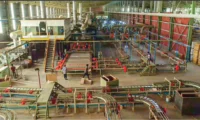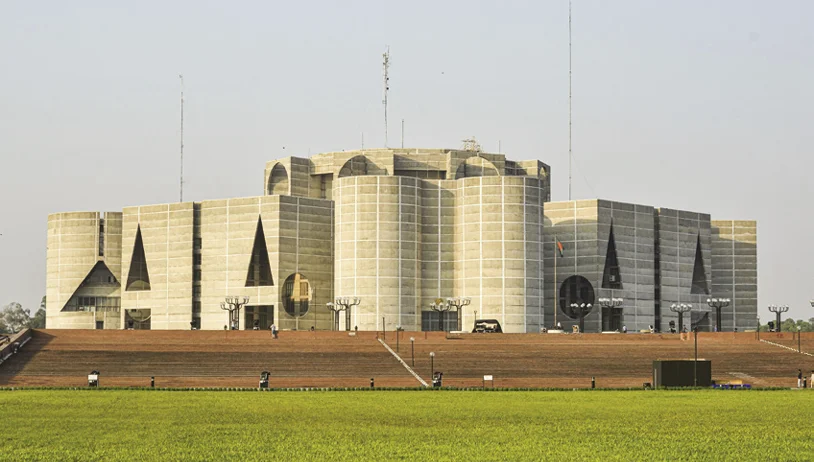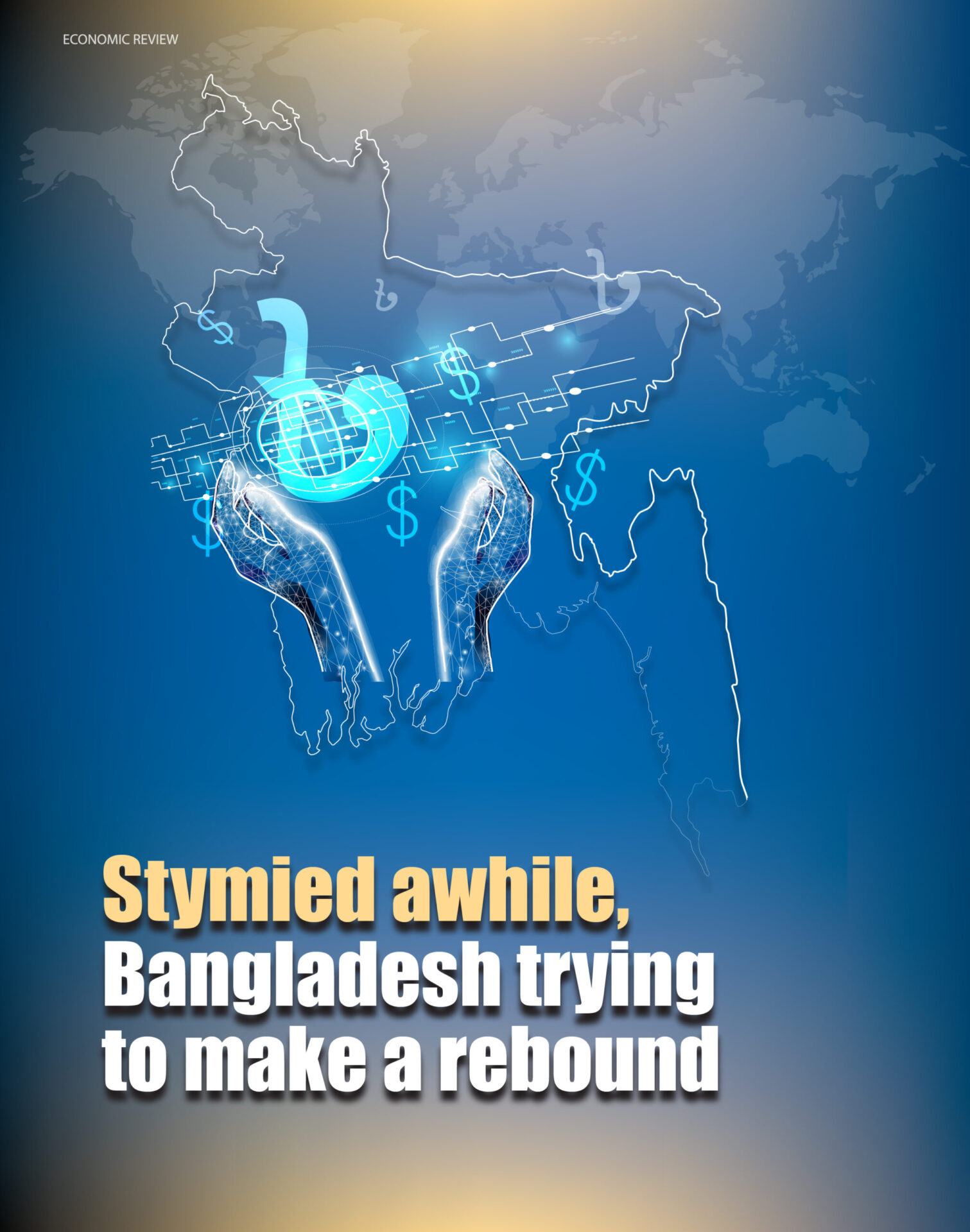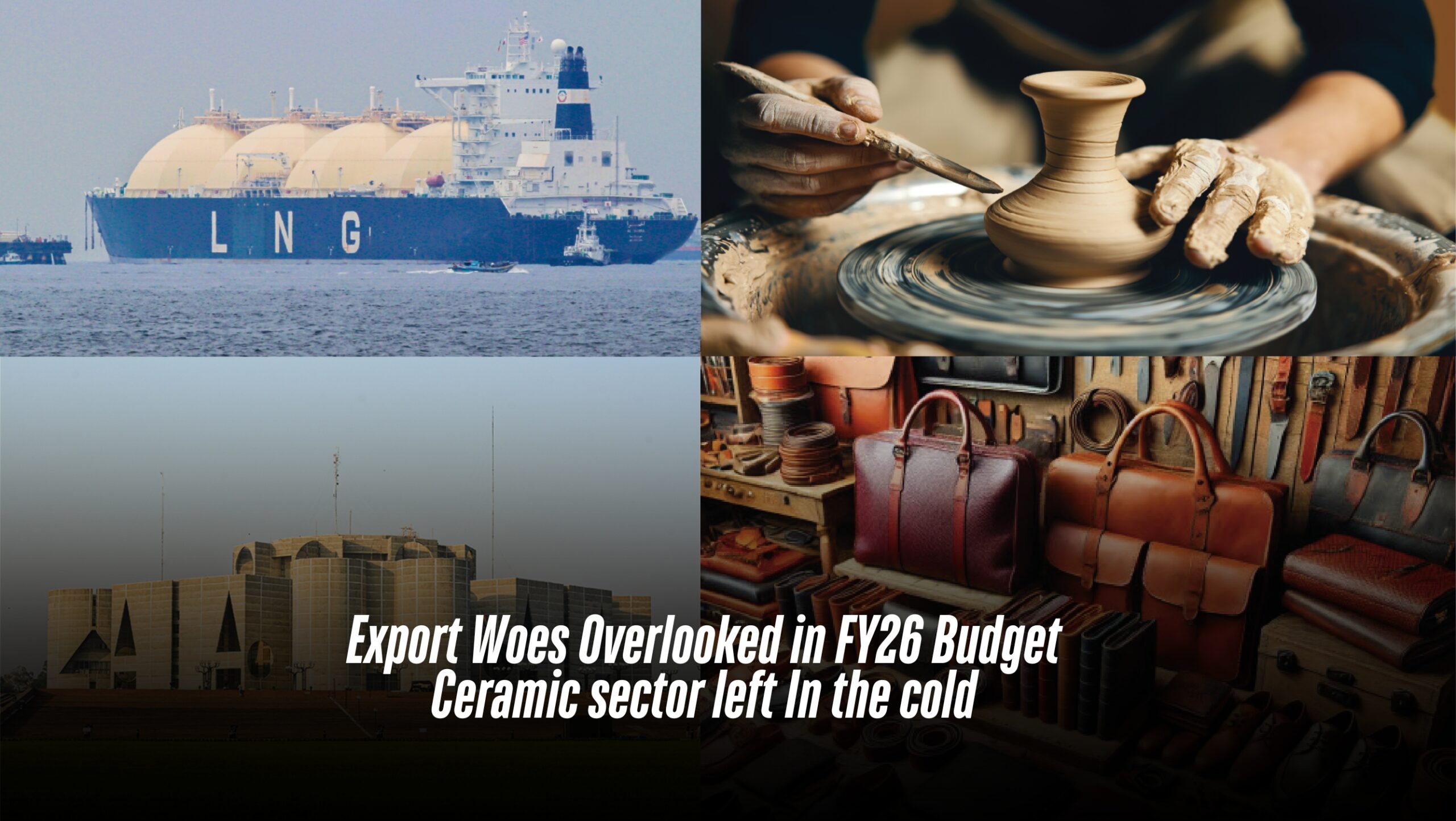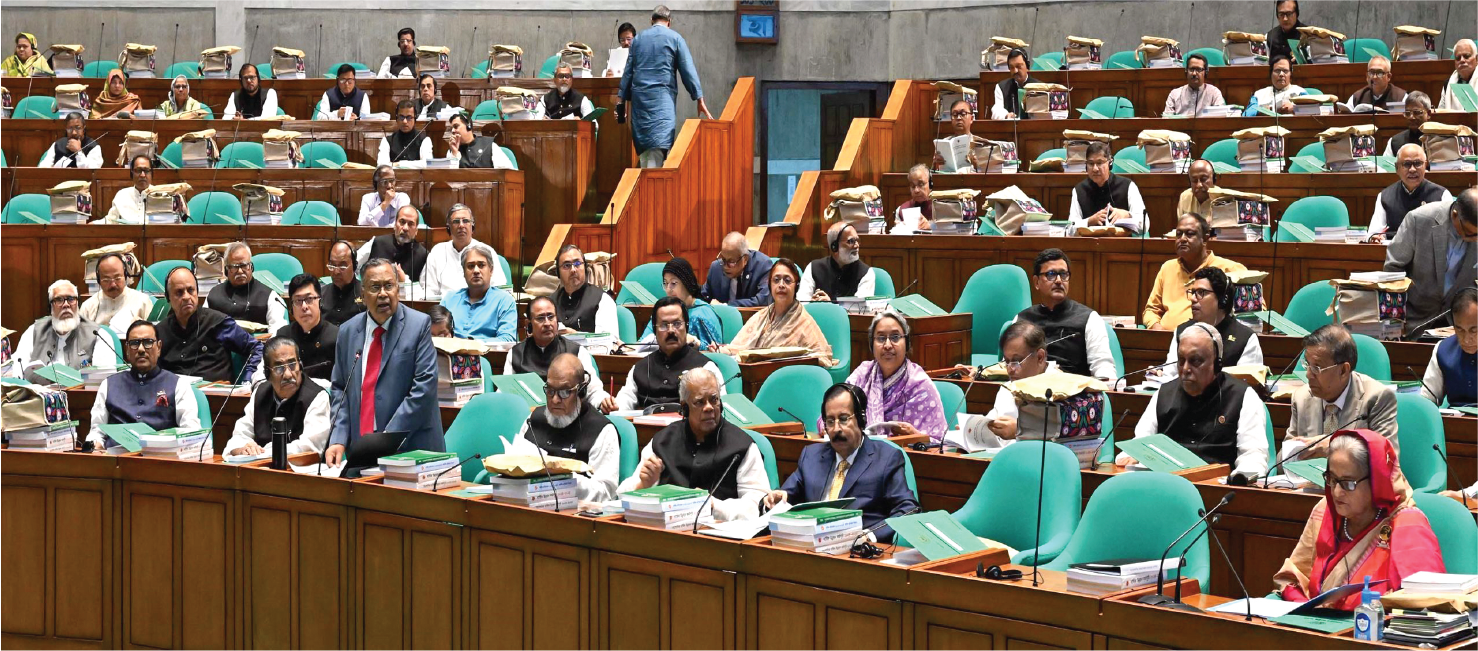
The recently unveiled Tk 7.97 trillion national budget for the 2024-25 fiscal year for Bangladesh aims to bringing a balance between controlling inflation and attaining economic growth. Economists, however, caution that higher borrowing and increased taxes on certain goods may prolong inflationary pressures. The budget’s reliance on domestic borrowing could lead to a “crowding-out effect,” restricting financing for businesses, particularly SMEs. Despite a target of 6.75 per cent GDP growth and plans to reduce inflation to 6.5 per cent, achieving these goals is deemed challenging.

The budget proposes revenue of Tk 5.45 trillion with NBR tax amounting to Tk 4.80 trillion, leaving a Tk 2.56 trillion deficit to be primarily financed through bank borrowing, which may prompt money printing by the central bank and further inflation. Economists welcome the conservative approach but criticise the plan to increase electricity prices, potentially exacerbating inflation. The budget also includes initiatives for digital transformation and job creation in the IT sector, aiming to attract foreign investment. However, with foreign funding dwindling and significant tax increases on various goods, the effectiveness of these measures in achieving the stated economic targets remains uncertain.
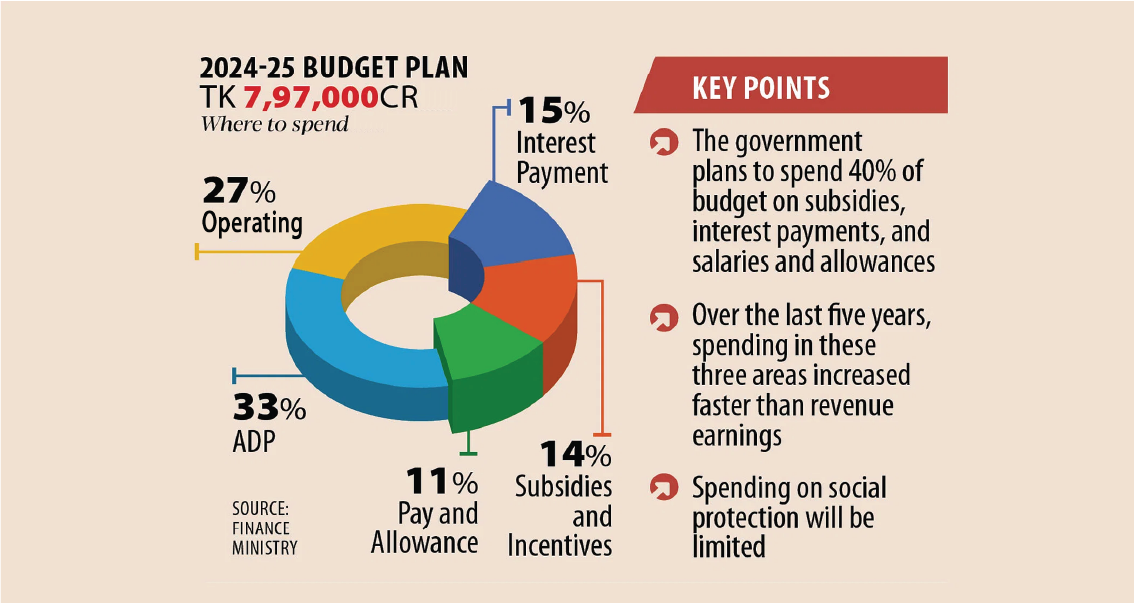
Bangladesh’s economic landscape is currently beset by numerous challenges, including stagnant investment, mounting debt repayment obligations, sluggish external sector growth, dwindling foreign exchange reserves, a fragile financial sector, tepid economic expansion, unemployment woes, and widening inequality, apart from soaring inflation.
The proposed budget must confront immediate hurdles head-on through targeted budget allocations and fiscal policies. Although the budget is crafted for a single fiscal cycle, it serves as the conduit for translating the government’s economic strategies and political vision into reality. Hence, the proposed budget assumes paramount importance in tackling pressing issues such as safeguarding the interests of the impoverished, low-income, and lower-middle-income households, as well as addressing short to medium-term challenges such as fostering robust economic growth and curbing inequality. Given the prevailing economic exigencies, the FY2024-25 budget must pivot on four critical areas.
Dr. Muhammad Abdul Mazid, a former chairman of the NBR, emphasised that this year’s budget cannot be compared to those announced in the past 8-10 years due to the turbulent global economy and several macroeconomic challenges facing Bangladesh. These challenges include a reserve crisis, dollar devaluation against the Bangladeshi Taka, higher inflation rates, and various governance issues.
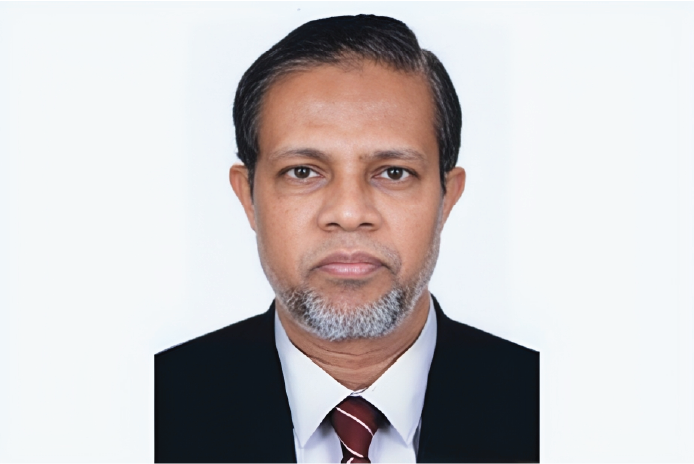
He asserted that overcoming the hurdles facing Bangladesh’s economy in the national budget will be difficult all of a sudden and in a shorter period. Instead, the government should focus on shaping a roadmap to navigate these crises. Dr. Mazid recommended that the budget should not follow the typical patterns of previous fiscal years; rather, it should include reforms in fiscal and monetary policy to address inflation, the dollar crisis, and reserve issues.
Additionally, he suggested the formation of a banking commission to address loopholes in the banking sector. To curb inflation, the National Board of Revenue (NBR) could reduce duties on certain products, but effective market monitoring and management are essential to realise the benefits of such duty reductions. Strengthening the NBR’s capacity is crucial for enhanced revenue realisation. Moreover, Dr. Mazid stressed the importance of allowing concerned government organisations, such as the Anti-Corruption Commission (ACC), to operate independently to ensure effective governance.
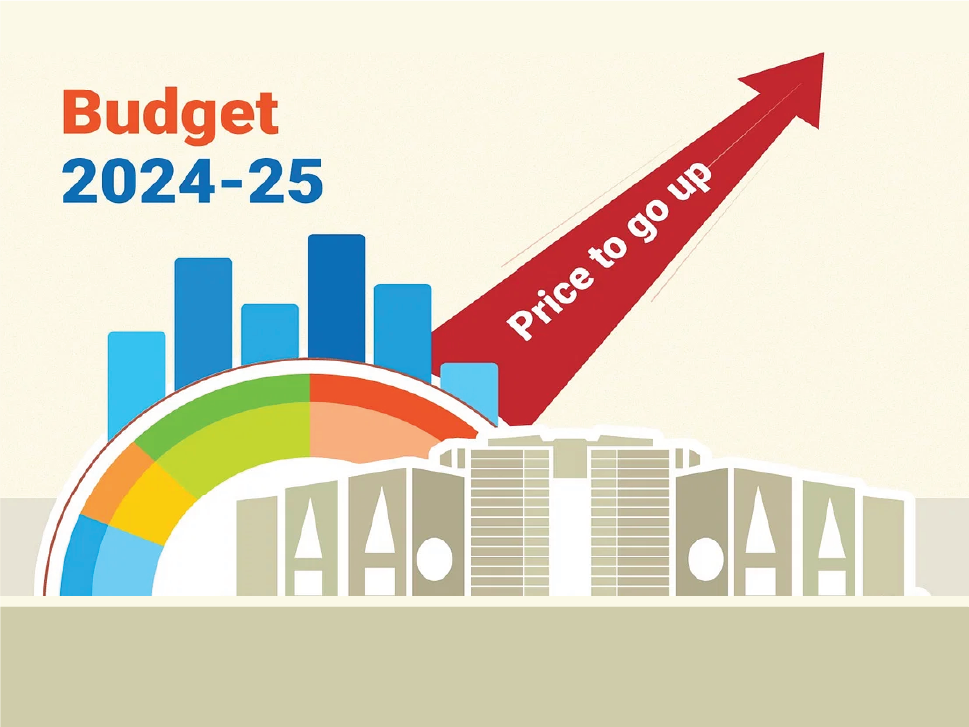
Ceramic Industry Overlooked
The ceramic industry, part of the private manufacturing sector, has been significantly overlooked in the proposed national budget. Leaders of Bangladesh’s ceramic sector are urging for the removal of the 15 per cent supplementary duty on local tiles and the 10 per cent duty on domestic sanitary products. They point to rising raw material and gas prices, which have increased production costs. By eliminating these duties, they believe consumer prices would decrease.
Md Shirajul Islam Mollah, a Member of Parliament and President of the Bangladesh Ceramic Manufacturers and Exporters Association (BCMEA), had previously proposed removing additional duties on raw material imports and increasing tariffs on foreign ceramic products to the National Board of Revenue (NBR) before the 2024-25 fiscal year’s budget announcement. These measures would reduce imports, save foreign exchange, and boost employment in the country. Despite the relevance of these proposals, none were addressed in the budget. The domestic ceramic market, valued at Tk 8,500 crore. Although domestic companies control over 80 per cent of the market, they face tough competition from imports due to high production costs.
On one hand, due to the dollar crisis, L/Cs (letters of credit) are not being opened for importing sufficient raw materials and machinery. Additionally, despite high prices, necessary gas for producing finished goods is not being supplied. On the other hand, amidst dollar crisis, the Bangladesh Bank has announced a second term reduction in cash incentives for ceramic exports—from 10% to 6%—within a span of six months. Meanwhile, the cost of doing business continuously increases. Over the past year and a half, Bangladesh has received loans from the IMF in three installments, but despite implementing several conditions attached to the loan, there has been no such improvement; rather than deterioration.
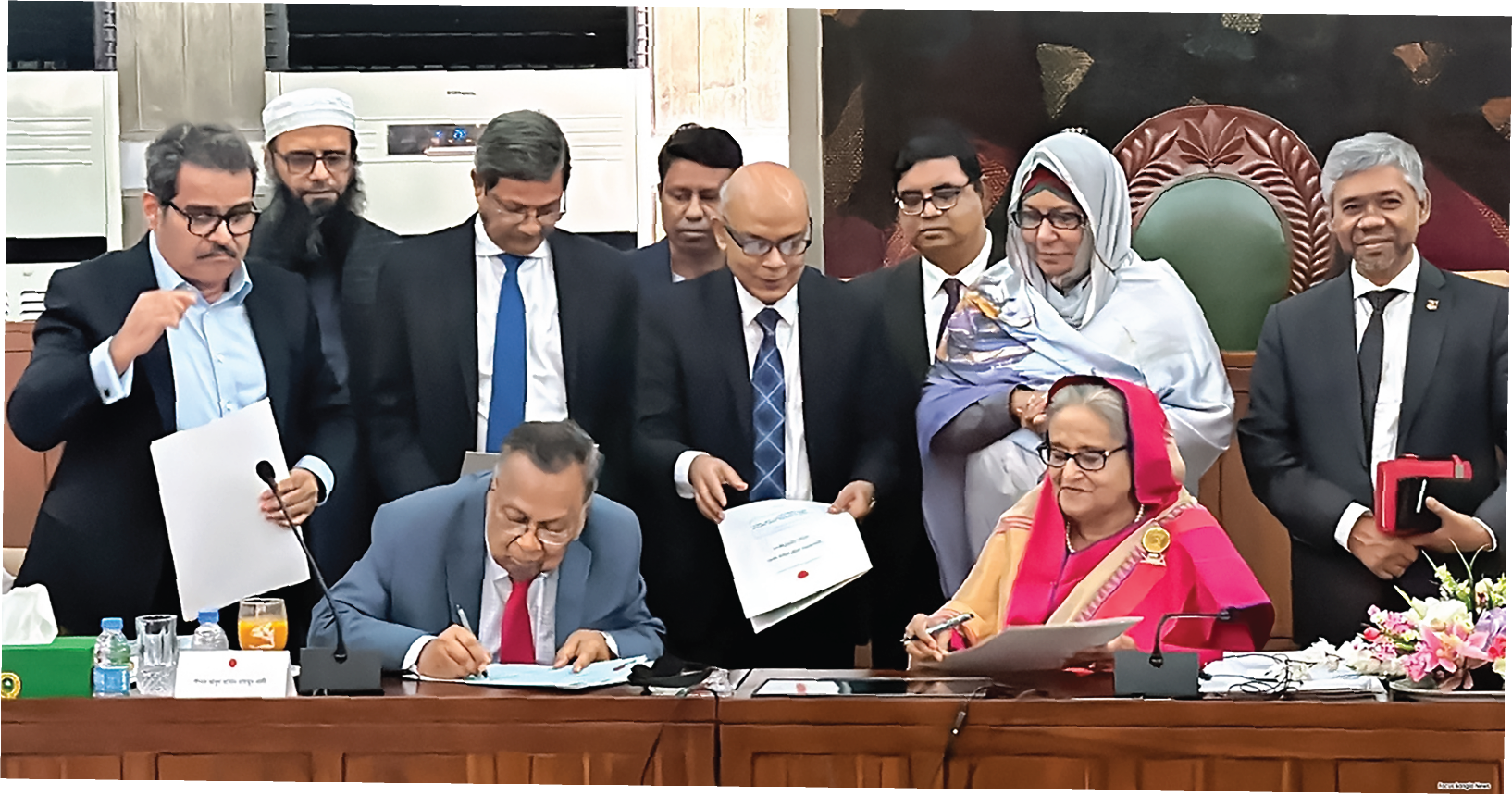
Addressing Fiscal Challenges
Economists believe, in the face of daunting economic hurdles, Bangladesh must embark on a prudent fiscal course to steer through turbulent waters. With inflationary pressures mounting and investment stagnating, the budget for the 2024-25 fiscal year demands meticulous attention to fiscal prudence. The government’s traditional reliance on banking sector borrowings to bridge budget deficits exacerbates interest payment burdens amidst constrained fiscal space. Hence, a judicious fiscal consolidation strategy, entailing restrained spending and bolstered tax collection efforts, emerges as imperative.
Empowering the Social Sector
While substantial investments have buoyed physical infrastructure, the social sector languishes due to chronic underfunding. Education and healthcare sectors, in particular, warrant heightened attention, with allocations in FY2024 falling woefully short of requirements. Fostering human capital development through increased expenditure on education, healthcare, and skills development is indispensable for sustainable growth and inclusivity.
Facilitating Small Business Growth
Small businesses, the lifeblood of the economy, must be empowered through facilitated access to finance. The banking sector’s burgeoning non-performing loans pose a formidable barrier to lending, stifling entrepreneurial endeavours. Elevating the tax-free income threshold and curtailing tax evasion can provide much-needed relief to small enterprises grappling with inflation-induced hardships.
Maintaining Macroeconomic Stability

Amidst mounting environmental challenges, Bangladesh must spearhead a green transition to ensure sustainable development. Dr. M Masrur Reaz, Chairman and CEO of Policy Exchange Bangladesh, said the primary focus of the proposed budget is on maintaining macroeconomic stability. In navigating the economic turbulence, Bangladesh must remain steadfast in its commitment to fiscal rectitude and inclusive development. Addressing inflation has been a key concern, resulting in a conservative and marginal increase in the budget, he said, adding that this approach aligns the fiscal policy with the current contractionary monetary policy, aiming to control inflation effectively. The restrained increase in the budget size is expected to play a crucial role in containing inflationary pressures, Reaz expressed his opinion.
By maintaining the size of the Annual Development Programme (ADP), the budget seeks to manage foreign exchange reserves by curbing import demand. Encouragingly, the budget has increased allocations for education and health as a percentage of GDP, a positive move given the tight economic conditions, Dr. Reaz pointed out. Investing in these sectors is crucial for long-term economic growth, employment and social development, providing a foundation for a more resilient economy, he stated.
Lastly, robust institutional fortification for budget implementation is indispensable. The budget must delineate clear implementation mechanisms to counteract the government’s limited expenditure execution capacity. As development expenditure implementation lags, recalibration of the ADP is imperative to bolster public investment, which has waned in recent years. A balanced approach to the FY2025 budget, encompassing judicious fiscal consolidation and targeted support for vulnerable segments, underpinned by enhanced institutional governance, is of paramount importance.




